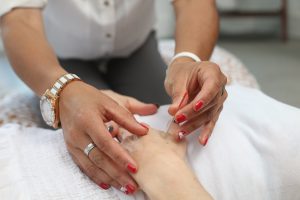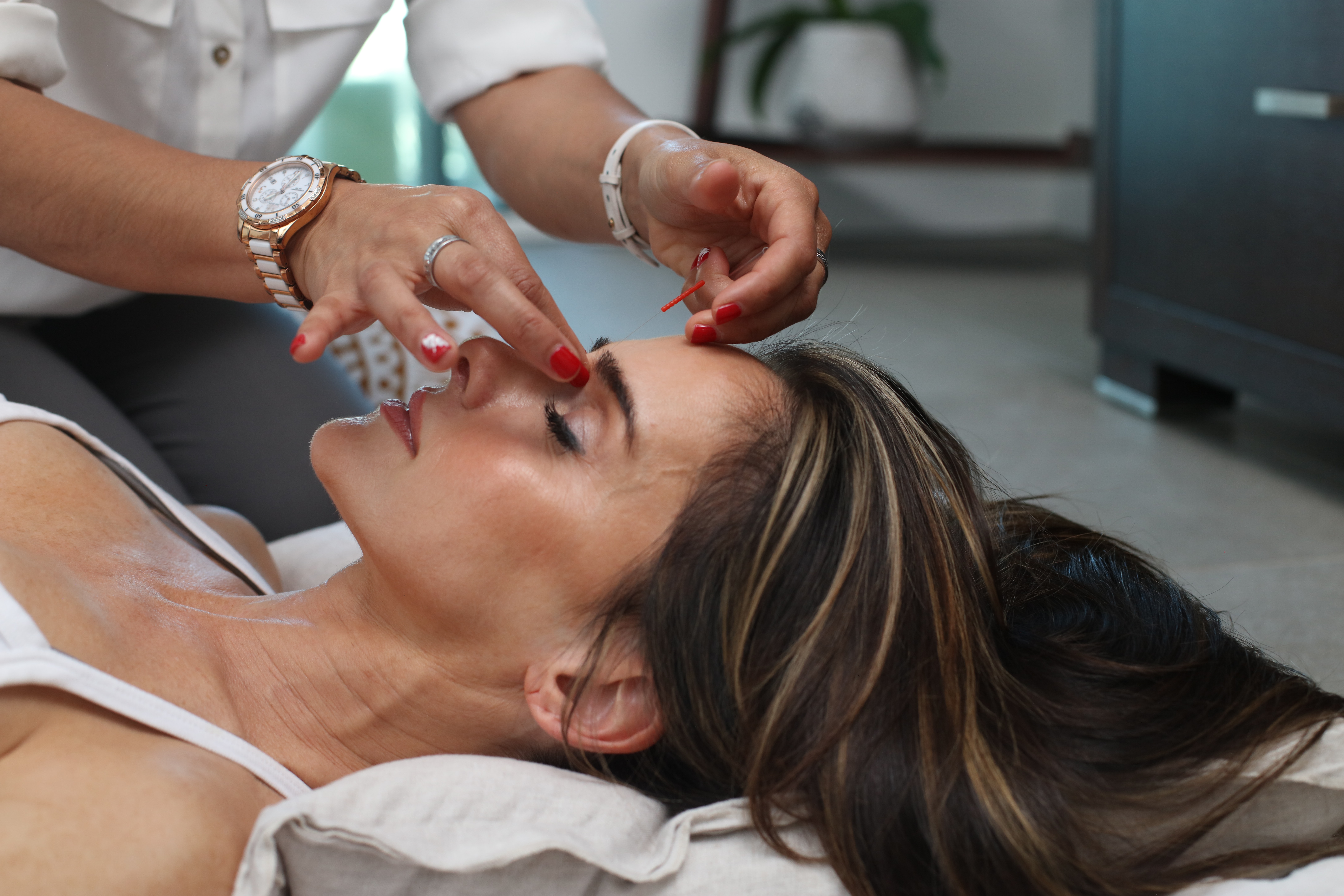Study finds receiving acupuncture before surgery reduces the need for addictive painkillers.
A Detroit-based research team reported in a new study that using acupuncture before surgery can reduce a person’s need for opioids post-procedure. The researchers suggest acupuncture is a low-cost, safe way to manage pain and can reduce anxiety in some patients.
According to a 2017 study, “more than 80% “of people receive a prescription for opioids after low-risk surgery and “nearly 87% of the post-op prescriptions” include highly addictive oxycodone or hydrocodone, which are result in the most overdose deaths. In 2020, researchers reported opioid-related overdoses were 28% higher than originally released data suggested because of incomplete death records. A previous study conducted in 2007 by a Duke University research team offered similar results.

“While the amount of opioids needed for patients who received acupuncture was much lower than those who did not have acupuncture, the most important outcome for the patient is the reduction of the side effects associated with opioids,” said Tong Joo (T.J.) Gan, M.D., a Duke anesthesiologist who presented the team’s findings at the annual scientific conference of the American Society for Anesthesiology in San Francisco. “These side effects can negatively impact a patient’s recovery from surgery and lengthen the time spent in the hospital.” He added, “The Chinese believe that our vital energy, known as chi, flows throughout the body along these meridians. While healthiness is a state where the chi is in balance, unhealthiness or disease state arises from either too much or too little chi, or a blockage in the flow of the chi.”
Results from the newest study concerning acupuncture pre-surgery were presented at the Anesthesiology 2020 annual meeting in Chicago this month. The team demonstrated how they conducted two experiments, dividing participants into two groups of 21 veterans scheduled to receive hip replacement surgery. First, one group received acupuncture while a second group believed they were receiving it, but actually underwent placebo acupuncture.
Participants in the placebo group needed “an average of 56 of morphine milligram equivalent (MME) in the first 24 hours after surgery.” By comparison, “those who had traditional acupuncture received an average of only 20.4 MME.” This was nearly two-thirds less than the control group. What’s more, the vets who received traditional acupuncture reported higher satisfaction with their pain management in a first day follow up post-surgery.
In the second experiment, 28 veterans received ‘ battlefield acupuncture’ which involves placing needles on the ear where they remain for three to four days. In the control group, 36 participants received the placebo procedure. The veterans who received the battlefield technique “required half as many opioids in the first 24 hours after the surgery as the control group (17.4 MME versus 35 MME),” according to the study’s results. They also “reported lower scores at a median of 8 versus 6 in the control group.”
Brinda Kish, lead author of the study and an anesthesiology resident at Detroit Medical Center, said, “Some patients were open to trying acupuncture right away, and others became more interested when they learned more about the risks of opioid use. It’s easy, patients love it, it’s not just another medicine, and it’s very safe.”
The team is recommending larger follow-up studies to further analyze the results.


Join the conversation!